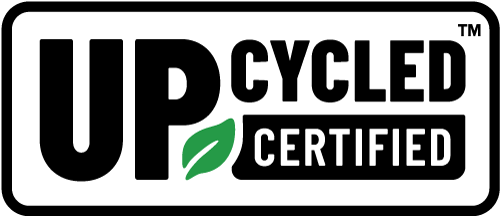Upcycled ingredients is a fast-growing trend

Published: May 27, 2023
Category: Market News
Upcycling is gaining traction among a growing number of consumers and food manufacturers that want to reduce food waste, which is a major contributor to climate change.
Upcycled foods use ingredients that otherwise would not have gone to human consumption. They are sourced and produced using verified supply chains and have a positive impact on the environment. Food companies have started quantifying their use of upcycled ingredients and making it part of a product’s point of differentiation.
According to the U.S. Department of Agriculture, 30% to 40% of the food produced for human consumption in the U.S. is wasted at a cost of more than $200 billion, and $1.2 trillion worldwide.
According to Innova Market Insights, North American food and beverage launches with a food waste and/or upcycling claim experienced 52% average annual growth between 2017 and 2021.
Renewal Mill’s flour is made from okara, a waste product from tofu production. NETZRO’s takes spent grain from breweries and upcycles it into high protein/high fiber flour. Brazil-based Barnana has saved 100 million bananas from going to waste by upcycling “imperfect” fruit into tortilla-style plantain chips.
FutureCeuticals, Momence, Ill., produces a functional ingredient that contains 50% soluble and insoluble dietary fiber from upcycled apples, carrots, blueberries, cranberries, and spinach. The ingredient delivers antioxidant-producing polyphenols to promote gut health.
FutureCeuticals also offers an ingredient made from cascara, the skin of coffee fruit. Cascara is a waste product of coffee production. FutureCeuticals formulated a sustainable solution that upcycles cascara as an ingredient. Cascara contains antioxidants and other nutrients linked with increasing memory and alertness.
Another company, Up To Good, developed an energy drink formulated with upcycled cascara. Up To Good sources the cascara from coffee farmers in Central America who practice sustainable agriculture.
Barry Callebaut, the world’s leading manufacturer of chocolate and cocoa products, is developing WholeFruit chocolate that is upcycled from the whole cacao fruit. About 14 million tons of cacao are harvested each year to make chocolate. Traditionally, chocolate is made from cacao seeds only, while the fruit is discarded, a waste of 10 million tons. Barry Callebaut is preventing this waste by upcycling the delicious and nutritious fruit.
Source: Food Business News
To view source article, visit: https://www.foodbusinessnews.net/articles/23601-upcycled-ingredient-development-on-the-upswing
Organic & Non-GMO Insights June 2023




